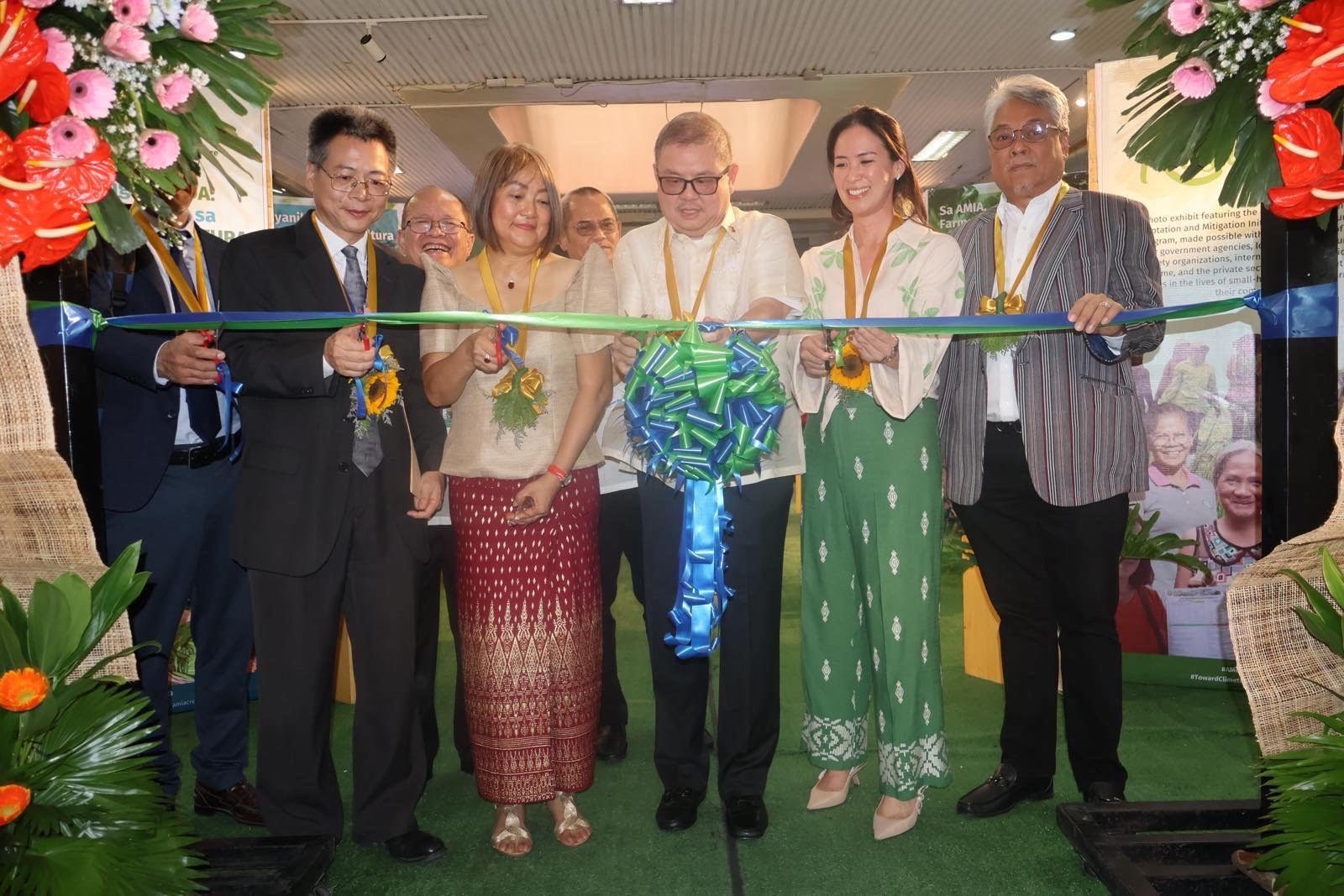Laurel, Kat Pimentel open DA's exhibit on agriculture sustainability
Department of Agriculture DA) Secretary Francisco Tiu Laurel, Jr. and Kat Pimentel led the launching of a government exhibit that highlights the strength and determination of Filipino farmers and fisherfolk in the face of climate change.

Dubbed as "AMIA Isang DekaDA Stories of Resilience”, the event is part of the celebration of the 10th anniversary of the Adaptation and Mitigation Initiative in Agriculture, or AMIA.
Pimentel, wife of Senate Minority Leader Aquilino “Koko” Pimentel III, said the AMIA Program for its efforts in training communities, particularly those dependent on agriculture and fisheries, to become resilient to the adverse effects of climate change.
"Climate Change has brought environmental challenges that directly impact our agriculture, forestry, and fishing sectors. The contribution of these sectors to the Philippines' gross domestic product (GDP) had been fluctuating partly attributed to the challenges posed by Climate Change,” said Pimentel.
She also highlighted a special provision in the proposed 2024 budget of the Department of Agriculture aimed at enhancing the resilience of agriculture communities through disaster-resilient infrastructure projects and the development of climate-adaptive seeds.
Pimentel commended the Department of Agriculture for spearheading the AMIA Program, which currently includes 181 AMIA villages across the country, with 20 of them in partnership with the Rice Watch Action Center.
She said the model communities serve as sources of best practices and centers of innovation for other communities to learn from.
"In these AMIA villages, we find the stories of resilience. Kwento ng mga Pilipinong hindi sumusuko, sa halip ay lumalaban upang mapanatili ang kanilang kabuhayan at ang kalikasan (These are stories of Filipinos who do not give up but instead fight to sustain their livelihoods and the environment),” Pimentel said.
"AMIA is not just a program; it is the realization of a dream for a more sustainable and prosperous future for all of us. Our farmers and fisherfolk are the unsung heroes of our society. They provide us food and help our economy grow,” she added.
However, they are also the most vulnerable to the impacts of Climate Change, she noted.
She expressed hope in the AMIA Program, saying, "With the help of the AMIA Program, there is hope. Together, as a community, we become stronger and better prepared to face the challenges posed by Climate Change.”